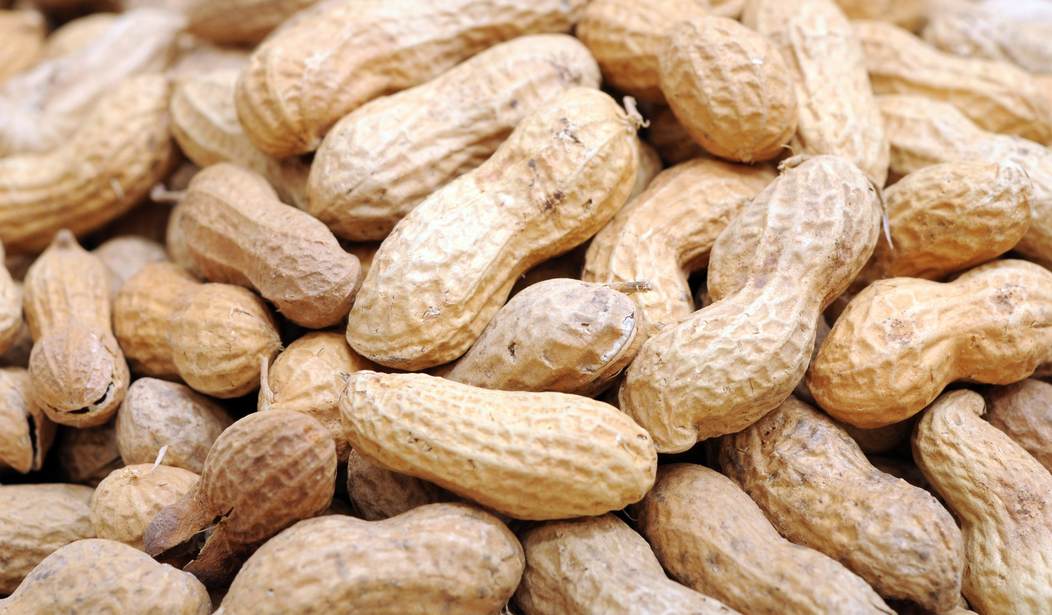If you have school-aged children, chances are you have encountered food allergy issues. Either your child himself suffers from a nut/egg/soy/dairy allergy, or one of his friends does. Your child’s school probably prohibits peanut butter in snacks and lunches, and you have had to complete an allergy form alerting teachers and administrators of any EpiPen needs and instructions. It seems that over the last decade or so, everyone has an allergy. Recent research on the issue may point to a reason for that. And now the guidelines are changing.
Previously, parents were warned against exposing their children to food allergens, especially at a young age. It was recommended that pregnant women avoid peanuts in particular, and babies weren’t to be fed the legume until at least 18 months of age (while high-risk children were told to avoid it until age three). But now, doctors are suggesting introducing risky foods (especially peanuts) early in order to prevent life-threatening allergies from developing.
A recent New York Times article broke the story:
The new guidelines, issued by the National Institute of Allergy and Infectious Diseases on Thursday, recommend giving babies puréed food or finger food containing peanut powder or extract before they are 6 months old, and even earlier if a child is prone to allergies and doctors say it is safe to do so.
If broadly implemented, the new guidelines have the potential to dramatically lower the number of children who develop one of the most common and lethal food allergies, said Dr. Anthony Fauci, the institute’s director, who called the new approach “game changing.”
[…]
Peanut allergies are responsible for more deaths from anaphylaxis, or constriction of the airways, than any other food allergy. Though deaths are extremely rare, children who develop a peanut allergy generally do not outgrow it and must be vigilant to avoid peanuts for the rest of their lives.
“You have the potential to stop something in its tracks before it develops,” said Dr. Matthew Greenhawt, chairman of the American College of Allergy, Asthma and Immunology’s food allergy committee, and one of the authors of the new guidelines. It appears there “is a window of time in which the body is more likely to tolerate a food than react to it, and if you can educate the body during that window, you’re at much lower likelihood of developing an allergy to that food,” Dr. Greenhawt said.
Ideally, if this new approach is broadly implemented, the instances of lethal peanut allergies will drastically decrease over the next few years. The new recommendations are the result of several recent studies. One report in particular was prompted by the observation that Israeli children developed far fewer peanut allergies than their Jewish contemporaries in England. Researchers noted that the former group routinely ate foods containing peanuts (including a popular peanut-based snack that is similar in consistency to a cheese puff). The British children were 10 times more likely to suffer from peanut allergies than the Isreali kids. That’s a notable difference.
The NY Times writes:
The new guidelines divide children by risk. Low-risk infants, who don’t have eczema or an egg allergy and who have started solid foods, can be introduced to peanut-containing foods around 6 months at home by their parents. So can moderate risk children, who have mild eczema.
High-risk infants, who have severe eczema or an egg allergy, should be introduced to peanut-containing foods as early as 4 to 6 months, after they start other solid foods and are evaluated by a doctor for safety.
It is important not to feed small children whole peanuts, which can cause choking.
One way to introduce your baby to peanuts safely is to mix a couple of teaspoons of smooth peanut butter with a couple of teaspoons of warm water and stir until it has a smooth soupy or purée-like consistency, suggested Dr. J. Andrew Bird, director of the Food Allergy Center, Children’s Medical Center at UT Southwestern Medical Center in Dallas, who wrote a paper on the subject.
Can we imagine a world in which peanut butter and jelly sandwiches are permitted once again in school cafeterias? If this new research helps children the way it hopes to, Skippy and Peter Pan might make a comeback in lunch boxes everywhere.
“This won’t outright prevent every single case of peanut allergy – there will still be some cases – but the number could be significantly reduced by tens of thousands,” Dr. Greenhawt said. “In the best case scenario, every allergist across the U.S. could be seeing fewer cases of peanut allergy — and that’s a good problem to have.”








Join the conversation as a VIP Member